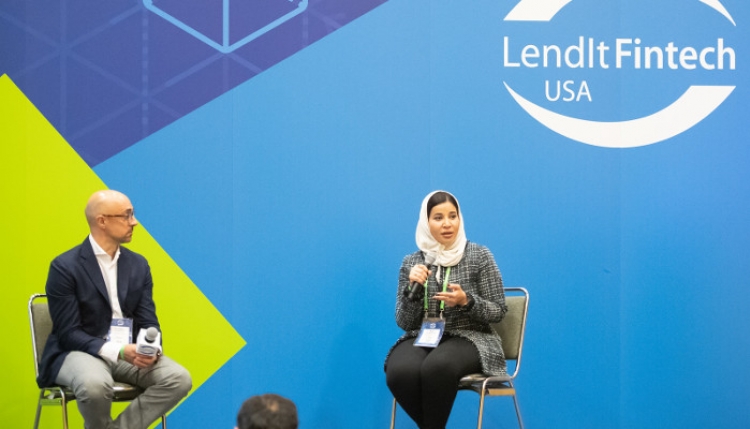The huge potential presented by the Middle East and Africa to disruptive businesses is one of the hot topics at LendIt Fintech USA 2019, where Dubai International Financial Centre (DIFC) led the conversation with the launch of its ‘A Roadmap for FinTech Firms Entering the Fast-Growing Emerging Markets’ report.
As the leading international financial hub in the Middle East, Africa and South Asia (MEASA) region and one of the world’s top ten FinTech hubs, the DIFC spearheads the drive to inform the global financial industry about the incredible opportunities that are opening up in the region. This is why the Centre has collaborated with LendIt, the organiser of the world’s largest FinTech event series, to ensure the Middle East and Africa is top of mind of financial services leaders. As part of this collaboration, senior representatives from DIFC attended and participated in the LendIt Fintech USA 2019 conference, which took place in San Francisco on 8 and 9 April. The two-day event, which has attracted more than 5,000 financial innovation experts from around the world.
DIFC has also worked with LendIt to produce a whitepaper about FinTech opportunities in the MEA region. The report, launched at the conference, provides recommendations and guidance for FinTech firms looking to capitalise on the growth potential of the region. It draws on the experience of a select number of FinTech firms, as well as a venture capital fund and leading banks that have established businesses or plans for the market.
“Despite its notable growth on the global level, the FinTech industry has only realised a fraction of its true potential. The real opportunity lies in emerging markets, which are still largely untapped due to the lack of access to financial services”, said Arif Amiri, Chief Executive Officer of DIFC Authority.
“With close to 70% of its population having either limited or no access to financial services, the region sits on a large pool of opportunities that are constantly fuelled by the increasing need for financial solutions. As the region’s most comprehensive FinTech ecosystem, we have created an enabling business environment to help FinTech firms and investors tap into these opportunities, keeping in mind the need for access to funding, regulation and infrastructure.”
According to the whitepaper, the number of FinTech companies in MEA is expected to reach 1,845 by 2022, almost quadrupling since 2015, when the figure stood at 559. The two main drivers of this growth are the huge market potential, fuelled by its large unbanked population and high smartphone-adoption rates, and the strong ecosystem support, represented by the development of digital infrastructure and government initiatives for financial inclusion. The most active FinTech segments in MEA are payments/remittances, digital banking, online lending, crowdfunding, InsurTech, blockchain/crypto, RegTech, artificial intelligence and analytics.
The white paper also features a series of recommendations for FinTech firms entering the region, including:
- Balance market research and on-the-ground testing before pursuing opportunities to confirm interest
- Look to local and regional banks as they may be more open to opportunities than global banks with offices in the region
- Tailor the solution to the market to enhance value proposition
- Collaborate with partners to benefit from established relationships within the market
- Prepare for fast and slow periods as you adapt to the new market
- Take advantage of an accelerator to harness the concentrated exposure they offer to prospective customers, partners, and regulators
The DIFC is currently home to a dynamic community of more than 23,000 professionals, working across 2,100 companies, of which 80 are related to the FinTech sector. The firms benefit from an international partner network of 14 global FinTech hubs, including New York, London, Hong Kong, Kuala Lumpur, Singapore, Paris, Saudi Arabia and Mumbai, as well as the region’s largest FinTech accelerator programme, DIFC FinTech Hive, and a USD 100 million FinTech fund, which was launched in 2017.
In addition, the Centre’s independent regulator, the Dubai Financial Services Authority has created fit-for-purpose regulation through its Innovative Testing Licence, which allows qualifying FinTech firms to develop and test innovative concepts from within the DIFC, as well as dedicated crowdfunding and peer-to-peer regimes.





